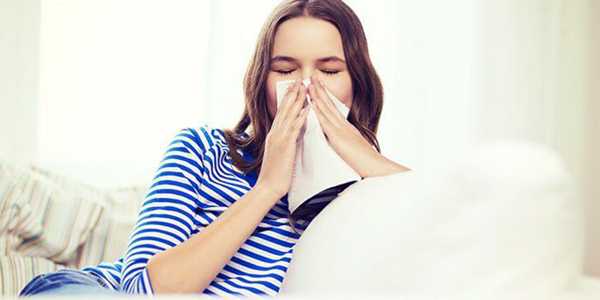Top 5 Tips You Can Use to Beat Seasonal Allergies
Millions of people suffer from seasonal allergies, which are nightmares when pollen levels are high. These allergies cause sneezing, runny noses, and itchy eyes.
These somewhat invasive symptoms bother us and can disrupt our schedules and drain us. Here's the good news: you don't have to go through a season with bad allergies. There are ways to stand up and take back your comfort.

Do not worry; there are a couple of tricks that will help you avoid suffocation and enjoy the fresh air outside. We have compiled this article on the best tips for fighting seasonal allergies.
These are not extensive medical procedures, but here are some essential, actionable tips you can implement now. Let's learn how to manage them.
Seasonal Allergies and Their Effects
Dealing with seasonal allergies can be very frustrating, as they interfere with one's day-to-day activities. It becomes frustrating when one is constantly sneezing or even rubbing itchy eyes; one cannot concentrate on what one is doing or even enjoy the weather outside.
But If you manage your allergies, you will enjoy your nights like never before. No more waking up at night to find the only comfortable position is face down on the pillow. This means increased energy during the day and better attention at work, among other areas.
Also, think of the freedom of going out for a picnic or a walk without considering allergies, which used to cause much discomfort. You could pause and smell the flowers—metaphorically, you could bite a rose.
Allergies must be addressed promptly for the patient to recover. The earlier you begin to make changes, the quicker you can live life again.
Practical Strategies to Combat Seasonal Allergies
Now that we know why beating allergies is so important, let's explore some practical ways to do it. These tips are easy to follow but can make a big difference in your feelings. Try them out and see which ones work best for you.
1. Monitor Pollen Counts and Plan Accordingly
Keeping an eye on pollen levels helps you avoid allergy symptoms. These days, most weather apps show pollen forecasts. Check them like you'd check the weather before heading out.
Pollen is usually highest in the morning and on warm, dry days. Plan outdoor activities later in the day or after it rains to avoid the worst.
Here are some things to skip when pollen is high:
● Hanging laundry outside
● Mowing the lawn
● Gardening without protective gear
2. Keep Your Home Allergy-Free
Your home should be a haven from allergies. A few simple steps can make a big difference in keeping allergens out.
Regular cleaning is vital. Dust and vacuum often, especially in bedrooms. Using air filters can also help trap allergens before they bother you.
Here's how to make your bedroom allergy-proof:
● Use hypoallergenic bedding
● Keep pets out of the bedroom
● Use a HEPA air purifier
● Vacuum regularly with a HEPA filter vacuum
3. Use Natural Remedies
Some people find relief from allergies through natural methods. These can be a good option if you want to avoid medication.
Nasal irrigation, like using a neti pot, can help flush out allergens. Some folks swear by local honey to build tolerance. Herbs like butterbur and stinging nettle may help.
Here's a simple allergy-fighting smoothie recipe:
Blend 1 cup spinach, one banana, 1 tbsp local honey, and 1 cup almond milk.
Remember, even natural remedies can interact with medicines. Always check with your doctor first.
4. Boost Your Immune System
A robust immune system can help you fight off allergies better. It's all about giving your body the tools to stay healthy.
Getting enough sleep, managing stress, and staying active all help boost immunity, and what you eat matters, too.

Try adding these immune-boosting foods to your diet:
● Citrus fruits (for vitamin C)
● Yoghurt (for probiotics)
● Fatty fish (for omega-3s)
● Pumpkin seeds (for zinc)
5. Consider Over-the-Counter and Prescription Medications
Sometimes, you may need extra help from medications. There are lots of options out there.
Antihistamines help stop allergy symptoms, decongestants clear up stuffiness, and nasal sprays can help. Each type works differently.
Here's a quick comparison of common OTC allergy meds:
● Cetirizine (Zyrtec): Good for all-day relief, might make you sleepy
● Loratadine (Claritin): Non-drowsy, works well for many people
● Fexofenadine (Allegra): Fast-acting, less likely to cause drowsiness
Always talk to your doctor before starting a new allergy med. They can help you find the best option for you.
Take Control of Your Allergies Today!
Don't let another allergy season pass you by in misery. These tips are your ticket to enjoying spring and summer without constant sneezing and itching. Many people who've tried these strategies say they wish they'd started sooner.
Remember, allergies don't just go away on their own. The longer you wait, the more you'll suffer. Why miss out on picnics, hikes, or just sitting in your backyard? Start small - even trying one tip can make a difference.
Your allergen-free life is waiting. Try these tips and see how much better you feel. You might be surprised at how much you've been missing out on!
Frequently Asked Questions
Q: Can seasonal allergies develop later in life?
Ans: Yes, adults can develop allergies at any age. Changes in environment, hormones, or health can trigger new allergies. If you notice new symptoms, consult your doctor for proper diagnosis and treatment.
Q: Are there any foods that can help reduce allergy symptoms?
Ans: Some foods may help ease allergy symptoms. Add these to your diet: local honey, citrus fruits, turmeric, and foods rich in omega-3 fatty acids like salmon. Remember, diet alone won't cure allergies.
Q: How can you differentiate between allergy symptoms and a common cold?
Ans: Allergies usually cause itchy eyes and nose, while colds don't. Allergies also tend to last longer than colds. Allergy symptoms appear quickly when exposed to triggers, while cold symptoms develop slowly over days.
Q: Is it possible to build immunity to seasonal allergies over time?
Ans: While you can't wholly cure allergies, some people find their symptoms lessen over time. Consistent treatment and allergen avoidance can help. Immunotherapy (allergy shots) can also build tolerance to specific allergens.





